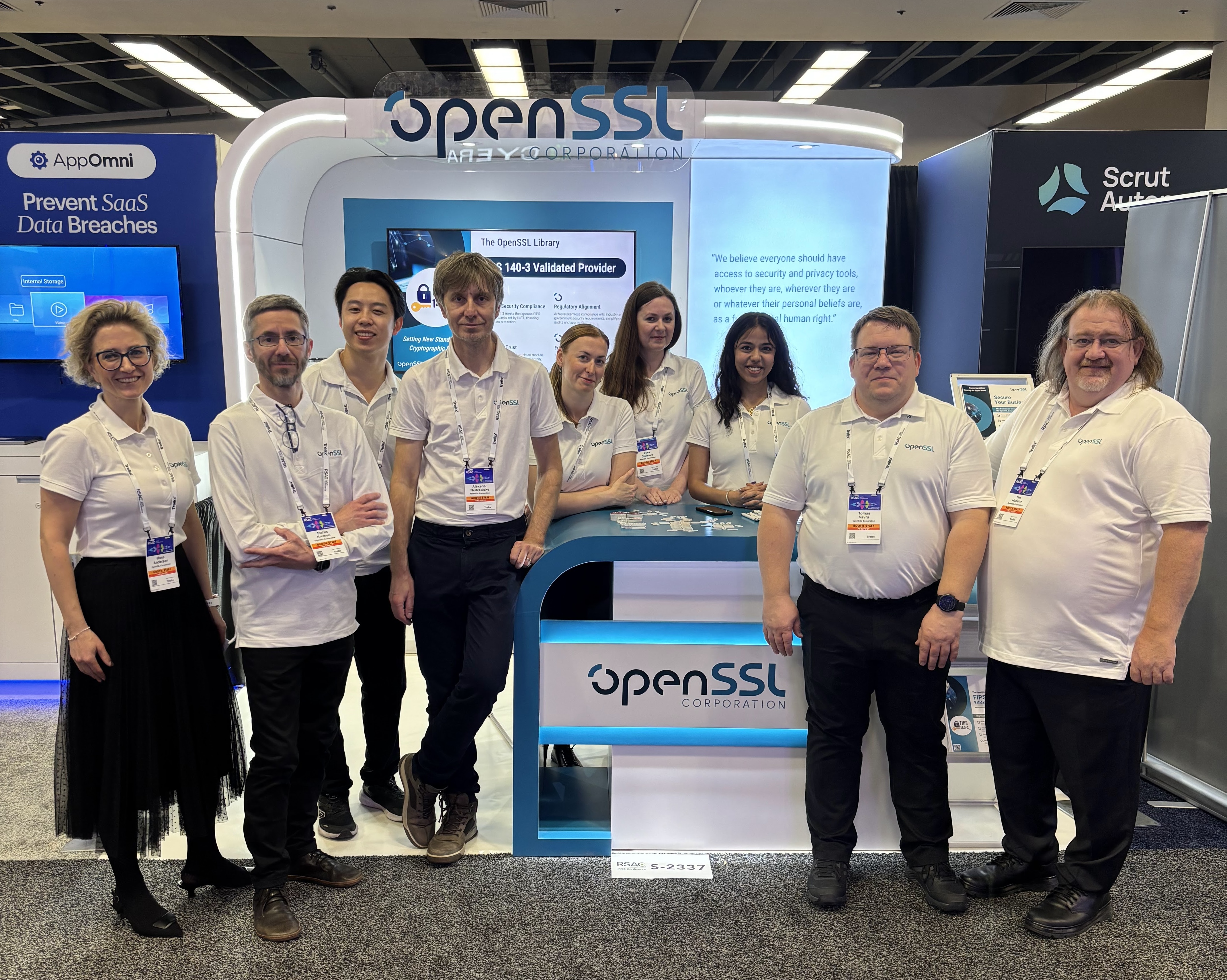As RSA Conference 2025 concludes, we are reflecting on a week of meaningful dialogues about the future of cryptography and how the OpenSSL Library continues to evolve.

OpenSSL Corporation team at RSAC 2025, from left to right: Hana Andersen (MarCom Mgr.), Stefan Kremen (Customer & Support Mgr.), Andrew Dinh (Software Engineer), Alexander (Saša) Nedvědický(Software Engineer), Kateřina Míčová (Business Admin), Jitka Biolková (MarCom Specialist), Kajal Sapkota (MarCom Specialist), Tomáš Vávra (Engineering & Standards Mgr.), Tim Hudson (President)








